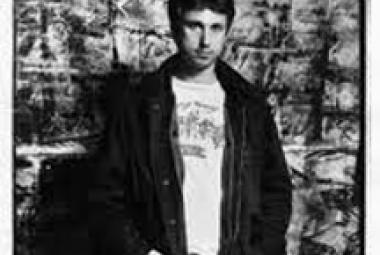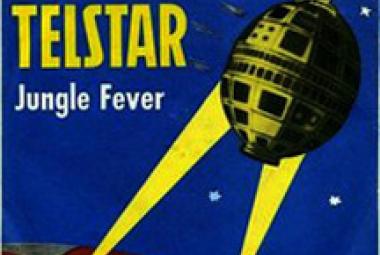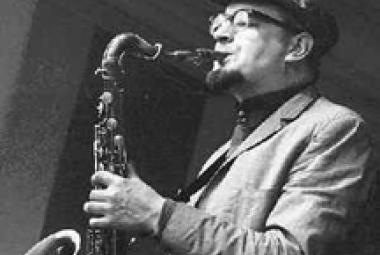Motown Records was founded in Detroit by Berry Gordy, Jr. in 1959; the original record label was Tamla Records, though Motown Records was in evidence later in the year. The label name is a contraction of “Motor Town”, reflecting the city’s status as the home of America’s largest automakers, and Motown later became a nickname for Detroit as well. (Technically the main power source in a car is an “engine”, though in the early years, everyone called it a “motor”).
Surprisingly, the Tamla Records label was named after the Debbie Reynolds song “Tammy” that was a hit from the film Tammy and the Bachelor (1957) – needless to say, “Tammy” is not at all an R&B song – and Berry Gordy originally wanted to name the label “Tammy Records”. Outside the U.S., the label was named Tamla Motown Records.
Berry Gordy’s first success as a songwriter was for a big hit for Detroit artist Jackie Wilson, “Lonely Teardrops”. He wasn’t too happy with his earnings from that song, however, so that led to the founding of the legendary record company, Motown Records.
* * *
A record company needs a songwriting team, and Motown had one of the best in the business with “Holland-Dozier-Holland”, that is, Lamont Dozier, Brian Holland and Eddie Holland (the latter two being brothers). According to Wikipedia: “During their tenure at Motown from 1962 to 1967, [Lamont] Dozier and Brian Holland were the composers and producers for each song, and Eddie Holland wrote the lyrics and arranged the vocals.”
I was frankly thrilled to see the three of them together on television once; they made a half-hearted attempt to perform one of their classic songs, but sadly not all that well – clearly their talents lay elsewhere. Eddie Holland did have some early success as a recording artist though. Also, as with many if not most songwriting teams, the individuals co-wrote songs with others over the years.
* * *
Holland-Dozier-Holland is a songwriting powerhouse; besides writing some of Motown’s best-known hits, they wrote most of the songs on entire albums for some of the biggest stars on the label. For the Supremes’ second album Where Did Our Love Go (1964), not only did Holland-Dozier-Holland write the group’s three Number 1 hits that appear on the album (as well as 10 of their 12 Number 1 hits overall) – “Where Did Our Love Go”, “Baby Love”, and “Come See About Me” – they also wrote 5 of the 9 other songs on the album. About Where Did Our Love Go, Wikipedia says: “With the release of this album, the Supremes became the first act in Billboard magazine history to have three number-one hits from the same album. It was the album that introduced ‘The Motown Sound’ to the masses. It was also, at the time, the highest ranking album by an all female group.”
For the Four Tops, Four Tops Second Album (1965) included two of the group’s best known hit songs, “I Can’t Help Myself (Sugar Pie, Honey Bunch)” and “It’s The Same Old Song” that were both penned by Holland-Dozier-Holland; in all, they wrote 10 of the 12 songs on the album.
* * *
The first band signed to Motown Records was the Miracles (originally called the Matadors). The leader of this band was William “Smokey” Robinson, Jr., who was also an important songwriter and record producer who helped develop the “Motown Sound”.
Among Smokey Robinson’s own hit songs that were also his compositions (at least as a co-writer, and usually also as the song’s producer) are classics like “Shop Around” – Motown’s first million-selling hit record – plus “You’ve Really Got a Hold on Me”, “I Second That Emotion”, “Ooo Baby Baby”, “Going to a Go-Go”, “The Tracks of My Tears”, and “Tears of a Clown”. Smokey Robinson also wrote or co-wrote (as outlined in Wikipedia) “Two Lovers”, “The One Who Really Loves You”, “You Beat Me to the Punch”, and “My Guy” for Mary Wells; “The Way You Do The Things You Do”, “My Girl”, “Since I Lost My Baby”, and “Get Ready” for the Temptations; “When I’m Gone” and “Operator” for Brenda Holloway; “Don’t Mess With Bill”, “The Hunter Gets Captured by the Game”, and “My Baby Must Be a Magician” for the Marvelettes; and “I’ll Be Doggone” and “Ain’t That Peculiar” for Marvin Gaye.
(April 2015/1)















